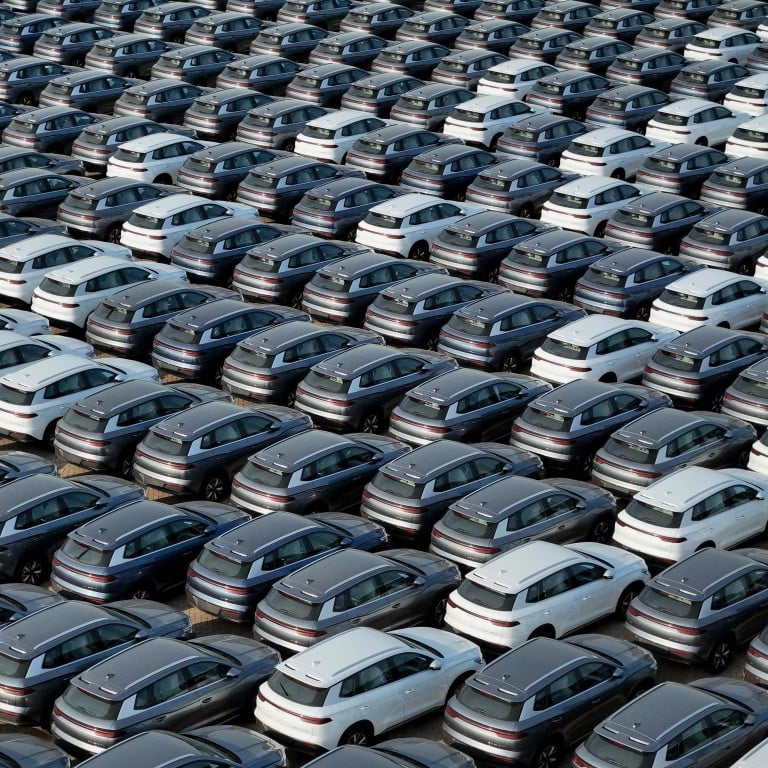
Goldman Sachs says escalating price war in China’s EV market could ensnare BYD, push sector into losses
- Overall industry profitability could become negative in 2024, if BYD introduces 10,300 yuan (US$1,421) price cut, US bank says
- Overall profit for EVs across the board has declined from 2,100 yuan to negative 1,600 yuan since July last year: Goldman report
Its net profit could become zero if BYD offers another price reduction of 10,300 yuan (US$1,421) per vehicle, a fresh sign that an escalating price war in the world’s largest EV market will become detrimental to the fast-growing industry, the US bank said in a report released on Tuesday.
“If another 10,300 yuan price cut comes about (in line with our assumption for BYD), we estimate overall industry profitability could turn negative in 2024,” Goldman said. The discount would represent 7 per cent of the company’s average selling price for its vehicles, Goldman added. BYD mainly builds budget models priced from 100,000 yuan to 200,000 yuan.
Since July last year, the overall profit for EVs across the board has declined from 2,100 yuan to negative 1,600 yuan, driven by a 21,000 yuan price drop, or 11 per cent of the cars’ average selling price, the report said.
VW aims to launch 30 EVs in China by 2030 as green shift erodes market share
Prices for 50 models across a range of marques have dropped by 10 per cent on average since, Goldman said.
On Sunday, Tesla lowered the prices of its Shanghai-made Model 3s and Model Ys by more than 5 per cent, hot on the heels of price cuts it made in the United States, its biggest market, on Friday.
The next day, Li Auto, a major Tesla competitor on the mainland, reduced the prices of all its vehicles by up to 5.7 per cent to bolster deliveries.
Tesla rival Li Auto cuts prices as EV discount war spreads to premium market
Cui Dongshu, general secretary of the China Passenger Car Association, said in February that most mainland carmakers are likely to continue offering discounts to retain their market shares.
“Owing to overcapacity concerns, major EV makers in China have prioritised market share,” said Eric Han, a senior manager at Suolei, an advisory firm in Shanghai. “As BYD initiated the price war, other small players are seeing increasing risks of being expelled from the market because they either lose sales or face squeezed profit margins.”
Tesla cuts EV prices in China in line with the US as sales slow
Shenzhen-based BYD, which is backed by Warren Buffett’s Berkshire Hathaway, posted a record net profit of 30 billion yuan for 2023, an 80.7 per cent year-on-year increase.
The company delivered a total of 3.02 million pure electric and plug-in hybrid vehicles at home and abroad last year, a 62.3 per cent increase over the previous year, largely eclipsing Tesla’s 1.82 million deliveries worldwide.
Yet its profitability lags far behind the US carmaker’s, which reported net income of US$15 billion last year, a 19.4 per cent year-on-year increase.

